Maziar Nekovee
Compensation of Coarse Quantization Effects on Channel Estimation and BER in Massive MIMO
Dec 16, 2025



Abstract:Low-resolution quantization is essential to reduce implementation cost and power consumption in massive multiple-input multiple-output (MIMO) systems for 5G and 6G. While most existing studies assume perfect channel state information (CSI), we model the impact of coarse quantization noise on both channel estimation and data transmission, yielding a more realistic assessment of system performance under imperfect CSI conditions in the uplink. We develop a tight approximation for the bit-error ratio (BER) of uncoded M-QAM with zero-forcing detection, based on the linear minimum mean-square error (LMMSE) channel estimate. These analytical results enable compensation strategies that jointly optimize quantization resolution, transmit power, and pilot length across different numbers of users and base station antennas. We further demonstrate the applicability of the proposed framework through several design scenarios that highlight its effectiveness in optimizing system parameters and improving energy efficiency under quantization constraints. For example, in a 16-QAM system, extending the pilot sequence by 2.5 times and lowering transmit power by 0.5 dB enables a 3-bit quantized system to match the BER of the full-resolution case. The proposed framework offers a fast and accurate alternative to Monte Carlo simulations, enabling practical system optimization under realistic quantization constraints.
Partially Reflected Surface (PRS)-Loaded Graphene-Based Patch Antenna for 6G
Jul 23, 2025Abstract:This work investigates a slotted patch antenna integrated with a partially reflected surface (PRS) to operate in the TeraHertz (THz) frequency range for 6G. The antenna is based on graphene material, on a Rogers RT Duroid 6010 substrate. The proposed antenna achieves a bandwidth of 70 GHz (750 GHz to 820 GHz). The PRS sheet consists of 5x4 unit cells, which are optimised to enhance the overall realized gain of the antenna. The overall realized gain has increased by 1.07 dBi. Also, the PRS enhanced the antenna radiation pattern, showing stable properties over the operating bandwidth. The improved antenna performance is validated via simulations.
Power Allocation and RIS Elements Optimisation for Reconfigurable Intelligent Surfaces assisted RSMA
Jul 23, 2025Abstract:This paper proposes power allocation and the number of reconfigurable intelligent surfaces (RIS) elements optimisation in a RIS-assisted rate splitting multiple access (RSMA) system. The optimised RIS-RSMA (ORIS-RSMA) method determines the optimal number of RIS elements and the power allocation factors for both common and private parts of a message. Additionally, it maximises the sum rate while ensuring that a target common rate is satisfied. The performance of the proposed ORIS-RSMA is compared to that of the conventional RIS-RSMA and RSMA. Simulation results show that ORIS-RSMA achieves a higher sum rate.
Deep Learning Based Autoencoder for Interference Channel
Feb 18, 2019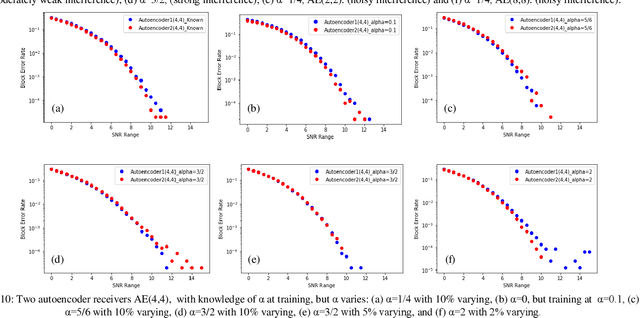
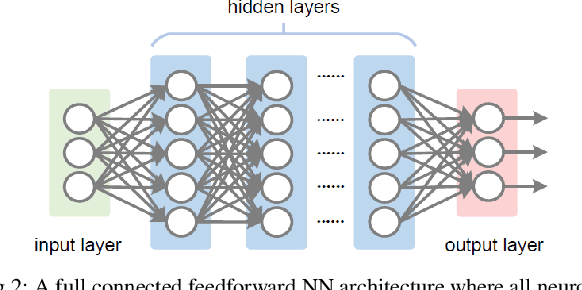
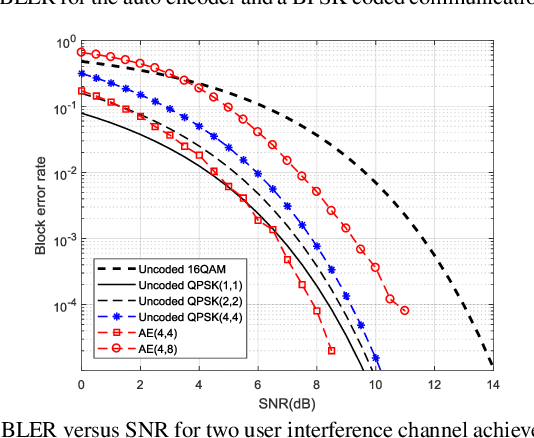
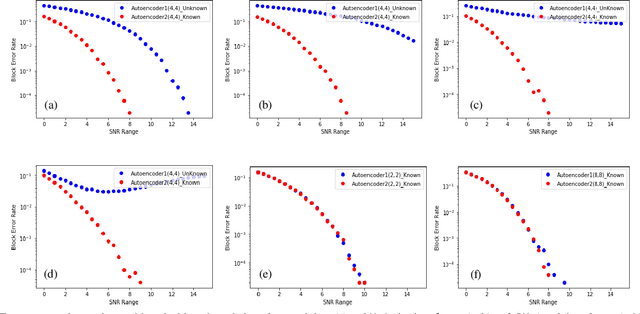
Abstract:Deep learning (DL) based autoencoder has shown great potential to significantly enhance the physical layer performance. In this paper, we present a DL based autoencoder for interference channel. Based on a characterization of a k-user Gaussian interference channel, where the interferences are classified as different levels from weak to very strong interferences based on a coupling parameter {\alpha}, a DL neural network (NN) based autoencoder is designed to train the data set and decode the received signals. The performance such a DL autoencoder for different interference scenarios are studied, with {\alpha} known or partially known, where we assume that {\alpha} is predictable but with a varying up to 10\% at the training stage. The results demonstrate that DL based approach has a significant capability to mitigate the effect induced by a poor signal-to-noise ratio (SNR) and a high interference-to-noise ratio (INR). However, the enhancement depends on the knowledge of {\alpha} as well as the interference levels. The proposed DL approach performs well with {\alpha} up to 10\% offset for weak interference level. For strong and very strong interference channel, the offset of {\alpha} needs to be constrained to less than 5\% and 2\%, respectively, to maintain similar performance as {\alpha} is known.
Impact of Cognitive Radio on Future Management of Spectrum
Mar 02, 2009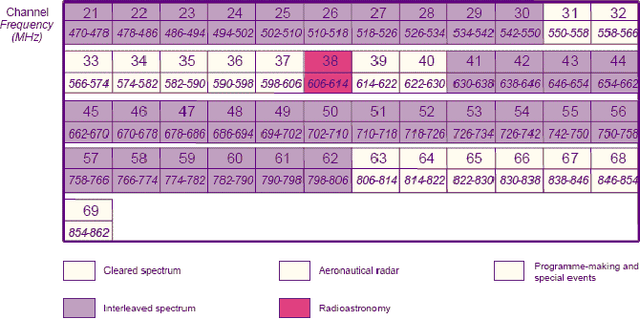
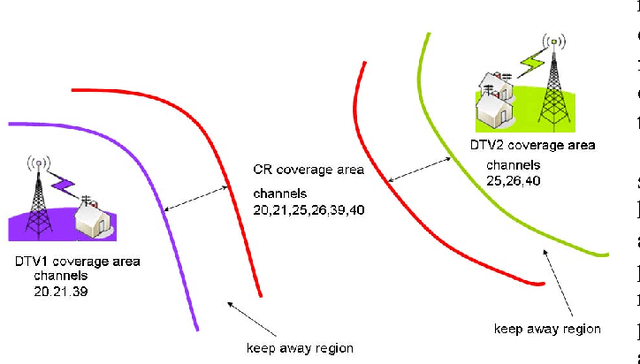
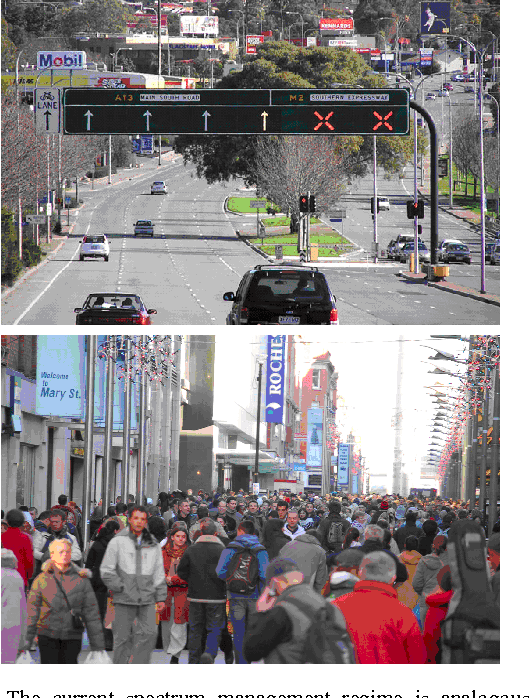
Abstract:Cognitive radio is a breakthrough technology which is expected to have a profound impact on the way radio spectrum will be accessed, managed and shared in the future. In this paper I examine some of the implications of cognitive radio for future management of spectrum. Both a near-term view involving the opportunistic spectrum access model and a longer-term view involving a self-regulating dynamic spectrum access model within a society of cognitive radios are discussed.
 Add to Chrome
Add to Chrome Add to Firefox
Add to Firefox Add to Edge
Add to Edge